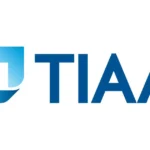In the ever-evolving world of telecommunications, one question has been echoing through the industry: Is Dish Network going out of business?
This once-mighty satellite television provider has been facing a perfect storm of challenges, from cord-cutting to massive debt, leaving many wondering if it’s on the brink of collapse.
Let’s dive deep into the world of Dish Network and explore whether this pay-TV pioneer can weather the storm or if it’s destined to become another casualty of the digital age.
Dish Network & Its History

To understand Dish Network’s current predicament, we need to rewind the clock. Founded in 1980 by Charlie Ergen, Dish Network started as a wild dream to bring satellite television to the masses.
It wasn’t until 1996 that this dream became a reality when Dish launched its first satellite and began offering direct broadcast satellite services to customers across the United States.
Over the years, Dish Network expanded its offerings, becoming a major player in the pay-TV market.
They were known for innovative features like the DVR and aggressive pricing that often undercut their competitors. But as we’ll see, the landscape of content distribution was about to change dramatically.
Key milestones in Dish Network’s history:
- 1980: EchoStar founded by Charlie Ergen
- 1995: Dish Network brand launched
- 1996: First satellite launched, beginning of consumer satellite TV service
- 2008: Acquisition of Sling TV, entering the streaming market
- 2020: Acquisition of Boost Mobile, marking entry into wireless services
- 2023: Merger with EchoStar, reuniting the two companies
The 2023 merger with EchoStar was seen by many as a desperate move to consolidate resources and save both companies. But was it too little, too late?
Read More : How to Start a Lawn Care Business Legally: 10 Steps to Success
EchoStar/Dish Questions Ongoing Viability
In recent SEC filings, EchoStar/Dish has raised substantial doubt about its ability to continue as a going concern. This isn’t just corporate jargon – it’s a red flag that has investors and industry watchers on high alert.
The company is burning through cash at an alarming rate, with debt maturities looming on the horizon. Their ambitious plans to build out a 5G network are looking increasingly shaky as financial pressures mount.
With debt maturities not until 2024 and the expectation to burn a significant amount of cash over the next 12 months, the financial condition for EchoStar/Dish is shaky at best.” – Industry Analyst
This cash burn is particularly concerning given the company’s need to invest heavily in wireless infrastructure to meet FCC coverage requirements. It’s a classic catch-22: they need to spend money to make money, but they’re running out of money to spend.
Expecting A Change Is Unrealistic

In the face of these challenges, some might hope for a miraculous turnaround. However, industry experts are less optimistic.
The pay-TV landscape has been shrinking for years, with cord-cutting becoming increasingly common. Dish Network, as a traditional satellite operator, has been hit particularly hard by this trend.
Factors contributing to Dish Network’s decline:
- Rise of streaming services (Netflix, Hulu, Disney+)
- Increasing cost of content rights
- Competition from cable and fiber internet providers
- Changing consumer viewing habits
Adding to these woes is a concerning trend of management exodus. When executives start jumping ship, it’s often a sign that they see the writing on the wall.
Losses Continue Among Subscribers
The numbers don’t lie, and for Dish Network, they tell a grim story. In Q4 2023, the company reported a net loss of 123,000 Boost Mobile prepaid subscribers. This represents a staggering 35.1% decline from the same quarter a year ago.
| Metric | Q4 2023 | Year-over-Year Change |
| Boost Mobile Subscribers | 7.38 million | -35.1% |
| Gross Adds | 609,000 | -35.1% |
| ARPU | $36.04 | -4.2% |
These subscriber losses are particularly concerning because they’re happening across all of Dish’s business segments. Even their 5G network buildout, which was supposed to be their saving grace, is behind schedule and under-funded.
Dish Network’s Financial Results In A Gist
If we zoom out to look at Dish Network’s overall financial picture, things don’t get any prettier. Here’s a quick rundown of their Q4 2023 results:
- Consolidated revenues: $4.16 billion (down from $4.53 billion in Q4 2022)
- Net loss: $2.03 billion
- Pay-TV revenues: $2.81 billion (down 9.3%)
- Retail wireless revenues: $898.28 million (down from $928.09 million)
- Broadband and satellite services: $447.77 million (down from $499.85 million)
These numbers paint a picture of a company in decline across all its major business lines. The market has taken notice, with Dish shares plummeting 6.48% on March 1, 2024.
Dish Network Bankrupt? Bankruptcy Events & Supportive

With such dire financials, it’s no wonder that bankruptcy rumors are swirling. While Dish Network hasn’t filed for bankruptcy as of this writing, there are several concerning signs:
- Confusing press releases about debt restructuring
- SEC filings with complex exchange offers for various notes
- Speculation about reorganizing assets and liabilities
Legal analysts suggest that EchoStar might be preparing for a strategic bankruptcy, potentially to shed liabilities while protecting valuable assets like spectrum holdings.
Dish 5G Network
One of the biggest question marks hanging over Dish Network’s future is its ambitious 5G network plans. As part of the deal that allowed T-Mobile to acquire Sprint, Dish committed to building a nationwide 5G network. This was seen as a way to maintain competition in the wireless market.
Building a nationwide wireless network from scratch is an enormously expensive undertaking. With Dish’s financial troubles, many are questioning whether they can pull it off. Missing buildout deadlines could result in hefty fines or even the loss of valuable spectrum licenses.
Spectrum Of Dish
Speaking of spectrum, this is perhaps Dish Network’s most valuable asset. The company holds significant spectrum holdings, which could be worth billions of dollars. These licenses come with strings attached – namely, buildout requirements.
Dish faces a crucial deadline in mid-June 2025 to cover 75% of the US population with its 5G network. Failing to meet this deadline could result in the loss of these valuable spectrum licenses. It’s a high-stakes game of chicken with the FCC, and time is running out.
Is Dish Network Going Out Of Business: Ransomware Attack On Dish Network
As if Dish Network didn’t have enough problems, in February 2023, the company was hit by a massive ransomware attack. This cyberattack crippled internal systems, caused widespread service outages, and resulted in the theft of sensitive data.
The impact on customers was severe:
- Service disruptions lasting weeks
- Customer support wait times exceeding 14 hours
- Data breaches potentially exposing customer information
This incident not only cost Dish Network financially but also dealt a severe blow to its reputation. In an industry where customer trust is paramount, such a major security failure could have long-lasting consequences.
Final Thoughts
As we wrap up our deep dive into Dish Network’s troubles, it’s clear that the company is facing an uphill battle. From subscriber losses to financial woes, from 5G buildout challenges to cybersecurity incidents, Dish seems to be fighting fires on all fronts.
Key challenges facing Dish Network:
- Declining subscriber base across all business segments
- Massive debt and ongoing cash burn
- Ambitious and expensive 5G network buildout requirements
- Increasing competition from streaming services and traditional telecoms
- Potential loss of valuable spectrum licenses if buildout deadlines are missed
- Lingering effects of the 2023 ransomware attack
While it’s too soon to write Dish Network’s obituary, the company’s future looks uncertain at best. Their ability to navigate these choppy waters will depend on several factors:
- Successfully restructuring their debt
- Meeting FCC buildout requirements for their 5G network
- Stemming the tide of subscriber losses
- Potentially selling off valuable assets like spectrum holdings
The telecommunications landscape is notoriously fast-moving, and Dish Network’s fate could serve as a cautionary tale for other companies in the industry. As consumers continue to cut the cord and demand more flexible, internet-based services, traditional pay-TV providers will need to adapt or face extinction.










